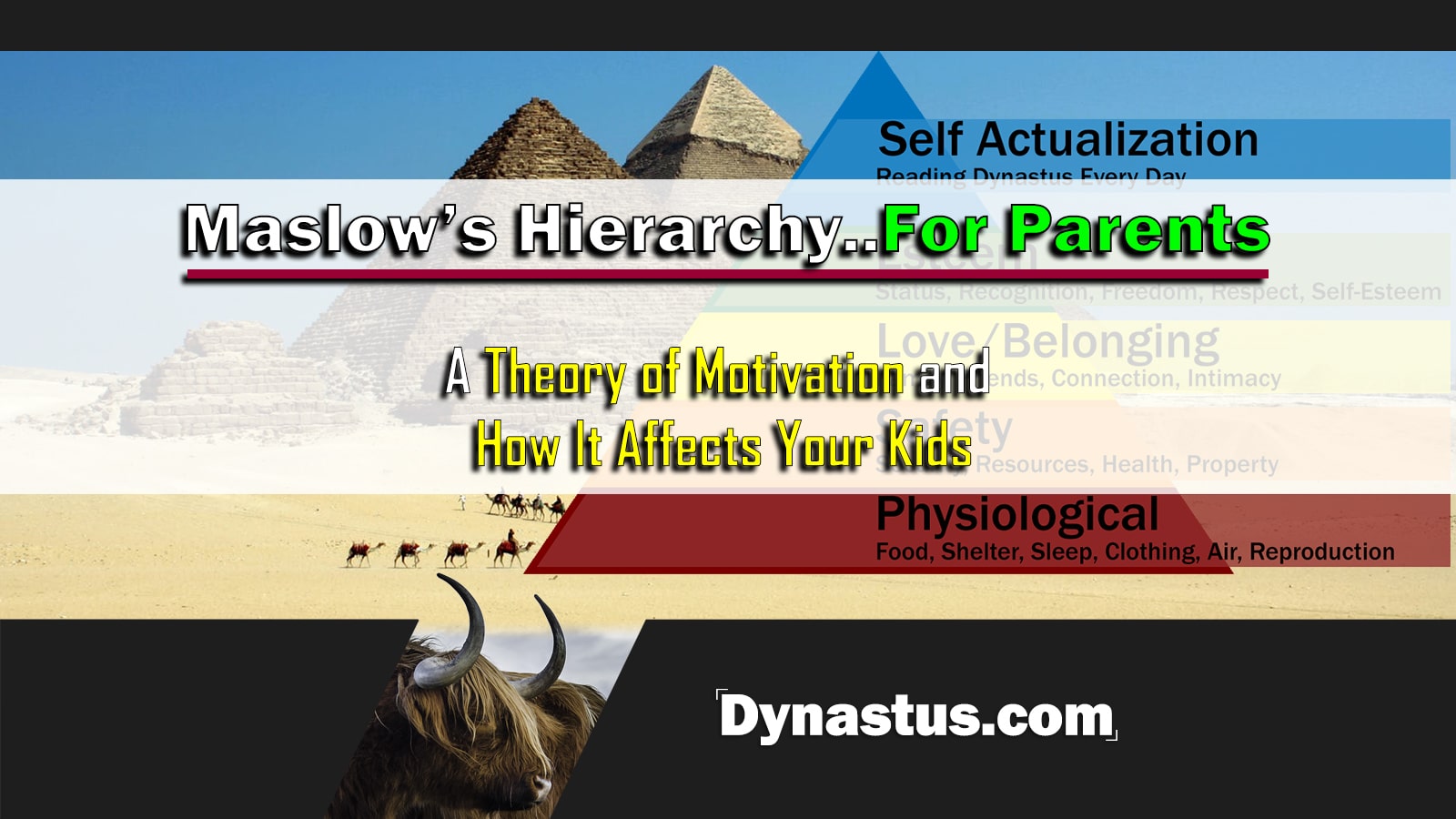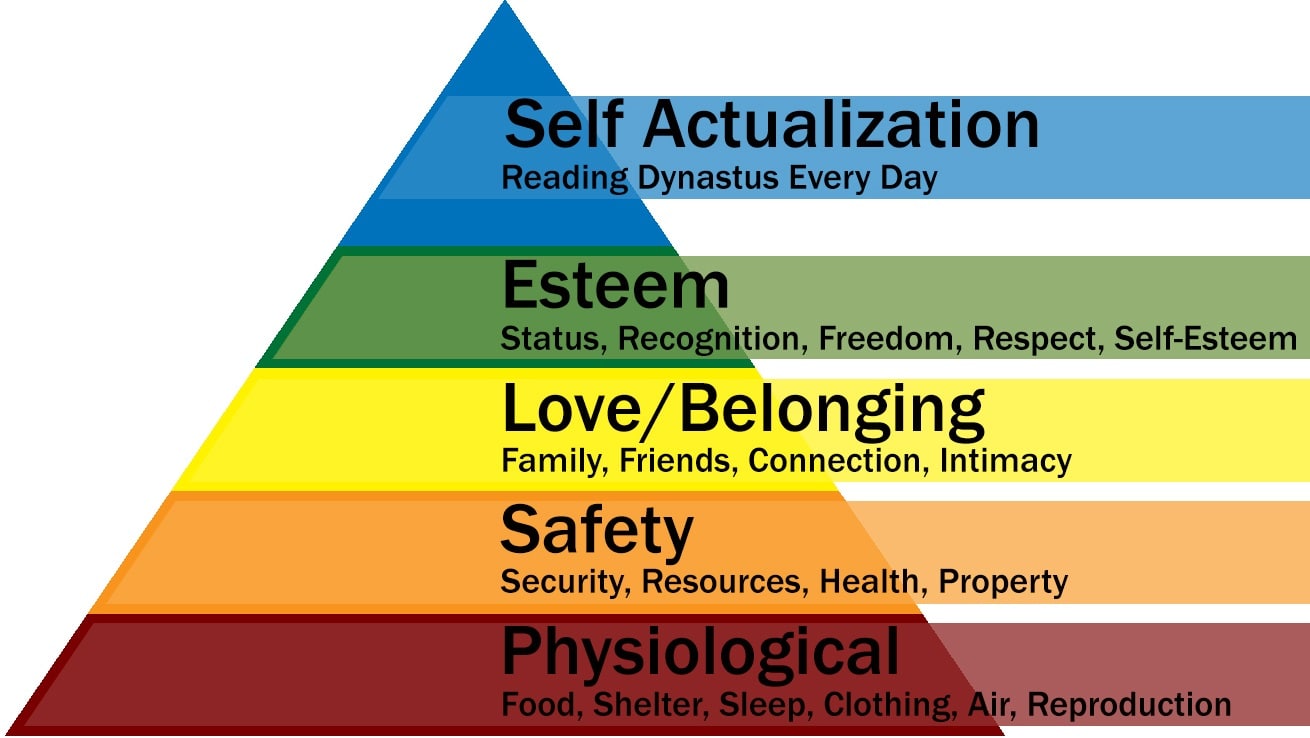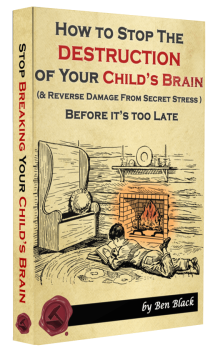
Disclaimer: I am not a financial advisor and this page exists to aid you in your research, but not make or suggest decisions for you. Further research is recommended for you to draw a conclusion of your own. Additionally some links contained on this page may be affiliate links in which Dynastus will receive a portion of sales at no additional expense to you.
Abraham Maslow proposed the existence of a ‘hierarchy of needs’ in his 1943 paper, “A Theory of Human Motivation”. He detailed the stages of growth in human development, in order of importance and dominance being “Physiological”, “Saftey”, “Love/Belonging”, “Esteem”, and finally “Self-Actualization”. This hierarchy remains an important and popular framework in sociology research, management training, and secondary and higher psychology instruction. Today we refer to this purely as “Maslow’s Hierarchy of Needs”
When it comes to parenting, there’s a lot to take in, consider and remember, this on top of the sleep deprivation, the draining changing and feeding, cleaning and learning, reading….and all the rest. Oh yeah, and when that’s all done, there’s ourselves to take care of too. If you’re aiming to build generational wealth, there’s the added stresses and systems of that as well…
Parenting is the the most important job in the world, and it’s also the best way to improve your human capital. So it really helps when there’s some quick, easy to recall axioms and models that we can apply to be the best parents we can be.
Enter Abraham Maslow’s hierarchy of needs. This triangle of needs, ranked from most important and fundamental to the optimal state serves as a great guide to keep in mind in our philosophical parenting endeavors.
The Triangle of Needs

Above is a pyramid, representing Maslow’s Hierarchy of Needs. The largest, most fundamental needs are at the bottom of the pyramid, with each level above it needing attention as the former is fulfilled. For example, you aren’t worried about making friends(Love/Belonging) if your security is a risk or you’re being chased by a lion(Safety). And you aren’t worried about getting your morning jog in(Health/Safety) if you’re starving to death(Physiological).
Naturally, it isn’t strictly this simple. The human mind is a complex beast and has parallel processes running at the same time. Different motivations are more than likely to occur at the same time. One might be seeking to improve their health at the same time as building friendships for example. But the final motivation, ‘Self-Actualization’, absolutely cannot occur unless the other 4 primary motivation needs are fulfilled.
The Primary Needs
Maslow called these 4 primary needs ‘Deficiency Needs’ or easier said ‘d-needs’. With the exception of Physiological(obviously little else matters if you’re suffocating), there may not be an actual physical indicator of the fulfillment of these 4 d-needs. It is likely that an individual will feel anxious or tense, however, which could be measured and tracked and labeled an indicator. For those actively pursuing self-actualization, Maslow coined the term, “Metamotivation”. Those who pursue this will transcend the desire only for ‘d-needs’.
Physiological Needs
At the base of Maslow’s Hierarchy of Needs, these are the things that are required to keep a human body functioning. They are the bare minimum for surviving. Without these for a certain period of time, a human body will shut down and fail. So it stands to reason that they must be taken care of first.
These needs include:
- Food
- Shelter
- Sleep
- Clothing
- Air(Breathing)
- Reproduction(sex)

Not much else matter when, during and briefly after you’ve slipped on a banana peel. OK, bad example.
Safety Needs
Once the basics are taken care at the base of Maslow’s Hierarchy of Needs, safety tends to dominate motivations. In the absence of a particular security, safety in that sector typically takes precedence. One example is in the case of a disaster, the desire to seek shelter is strong. Alternatively, in the case of war, the flight or fight response engages.
Also included in this echelon are things like job security, shelter, being in a safe environment and health. If one does not feel safe, they will search for a means to feel safe before any higher level of safety is sought. A lack of feeling safe can lead to high cortisol levels, which can have a big impact on health and development, as outlined on my post on epigenetics.
Safety needs include:
- Security(Personal, Emotional, Financial)
- Health
- Resources(Like money, or reliable access to food, water, clothing etc)
- Property(Basic Personal Belongings and Space)
Love/Belonging Needs
After one feels safe and physiological needs are met, the next thing on Maslow’s Hierarchy of Needs one seeks is a level of interpersonal interaction and a sense of belonging. This need is especially strong in childhood and may override the need for safety.
This explains why children from abusive households still cling to their parents. Lacking in this echelon in Maslow’s Hierarchy of Needs can affect one’s ability to form and maintain relationships. Lacking in this echelon can also result in susceptibility to severe loneliness, social anxiety, and depression.
People need to feel a sense of belonging be it in social groups like family, religion, circles of friends, clubs, co-workers, gangs and online groups. Humans have an innate requirement to love and be loved. The 3 D’s outlined in my post, based off of those from the matriarch of the Bonner Family would fall under this category for further example. It also pays to build your family’s social capital to help fulfill this bracket in the triangle of needs.
Love/Belonging Needs Include:
- Family
- Friendships
- Connection
- Intimacy
Esteem Needs
The final rung on Maslow’s Hierarchy of Needs prior to self-actualization, Esteem relates to gaining Status, Importance, and respect form peers. Humans have a need to feel needed and respected by those around them, a desire to feel valuable to others. This is why people engage in a profession or a productive hobby.
Low self-esteem individuals often need respect from others to bolster themselves, and typically seek fame or glory.
Maslow notes that there are two types of Esteem, ‘Lower’ and ‘Higher’. Lower esteem is the need for respect from others, like fame, status, recognition, attention etc. Higher esteem is effectively the need for self-respect, like personal strength, competence, mastery independence, and freedom.
Esteem needs include:
- Status
- Recognition
- Freedom
- Independence
- Personal Strength
- Competence
- Self-Esteem
Self Actualization
Once all of the d-needs are met, a person can concern themselves with the tip of Maslow’s Hierarchy of Needs. This is self actualization – becoming the best version of themselves they can be. This is a motivation level that many people never reach. It is the need to reach ones’ full potential.
This manifests itself in many ways depending on an individuals drive and innermost desires. One person may want to become the perfect parent, while another wants to become a master archer, another may want to become a high-level entrepreneur and another again may want to become a top level athlete. Some want to build dynastic land or generational wealth. Other people may want to express this artistically through paintings or inventions.
In short, self-actualization is the motivation to reach one’s full potential and be the best that they both desire to be and can be.

The secrets of the universe have been revealed to this young man.
How Maslow’s Hierarchy of Needs Fits Into Parenting
Self-actualization is about becoming the best one can be. In order for us, or our children to do this, all of the other ‘d-needs’ must be fulfilled. Thus it’s up to us as parents(or side-kicks to parents) to help our children work their way up Maslow’s Hierarchy of Needs and provide for them, as best we can, the tools, environment and opportunity to fulfill their d-needs. Only then can your child reach self-actualization and become the best they possibly can be.
So what do you think about Maslow’s Hierarchy of Needs? Is this something you will incorporate and reference in your parenting journey? Let me know in the comments below.
Thanks for reading. Yours,






